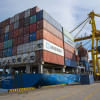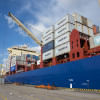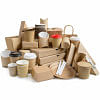Exports of paper and paper items reach 5-year high

Bangladesh's export earnings from paper and paper products in the July-November period of this fiscal year have reached a five-year high thanks to improvements in product quality and competitive prices, according to industry insiders.
The exports amounted to $110 million, which on a year-on-year comparison, is a growth of 51.42 percent, according to data of the Export Promotion Bureau (EPB).
Paper and paper product exports remain buoyant at a time when earnings from other exports have been slowing down, leading to sluggish growth in export receipts.
Bangladesh's exports grew 1.3 percent year-on-year to $22.23 billion in the July-November period of fiscal 2023-24, shows data of the EPB.
The paper and paper products are mainly shipped to Middle Eastern and African markets while a very small quantity goes to European and US markets, industry insiders said.
"The profit margin is higher for exports. Manufacturers have improved their product quality, which is encouraging exports," said Mohammad Sharafath Ali, deputy general manager of sales and marketing at Amber Super Paper Ltd.
Besides, the government provides a 10 percent cash incentive on the export earnings, which is also lucrative for exporters.
However, manufacturers are facing trouble in meeting local demand, he added.
Excluding two big conglomerates, most paper mills are finding it hard to import raw materials as they cannot open letters of credit (LCs) on time due to an ongoing shortage of US dollars, Ali said.
As a result, around 10 to 12 small-scale mills have postponed production temporarily.
Had it been possible to import raw materials as needed, exports would have grown further, he added.
Mohammad Alauddin, deputy general manager and head of sales marketing of Bashundhara Paper Mills Limited, said they export paper products to 52 countries, including the US and European markets.
The company has three production units for paper and paper products.
According to him, tissue paper is a major export item among Bangladesh's paper products.
The business involving paper has changed in recent decades as demand has gone down for A4 paper whereas it increased for industrial packing paper, tissue and specialty papers characterised by particular properties, he noted.
"We are upgrading our machines in a way such that plates, cups, straws, knives, forks, all sorts of these products can be made with different paper," Alauddin said.
Single use disposable or recyclable paper products will dominate the future market, he added.
The sector's sales are growing steadily at home and abroad, said Md Nazrul Islam, chief financial officer of Nitol Curtis Paper Mills Ltd, a concern of Nitol Niloy Group that supplies paper at wholesale in the domestic market.
Islam said they have not faced any problems in opening LCs to import raw materials as they maintain good relations with banks.
According to him, there has been a revival of the overall market from the turbulent situation during the Covid-19 pandemic but then again, some manufacturers have been facing problems in opening LCs due to the dollar crisis.
The sector is meeting domestic demand for all grades of paper and paper products alongside that of many other countries, he added.
According to data of the Bangladesh Paper Mills Association (BPMA), annual paper sales in the country amount to over Tk 5,000 crore, registering an annual growth of more than 5 percent in recent times.
Bangladesh has around 80 paper mills with a combined annual production capacity of over 15 lakh tonnes.
Of them, two groups of industries largely contribute to the sector with different varieties of products, market insiders said.
The industry created direct employment for over 50,000 people, the BPMA said.
Most paper mills have been in existence for a long time and hence there is now a wide range of technologies, it added.
As per the BPMA data, the production capacity of paper and paper products in Bangladesh is around 15 lakh tonnes while local consumption stands at about six lakh tonnes per year.

 For all latest news, follow The Daily Star's Google News channel.
For all latest news, follow The Daily Star's Google News channel. 








Comments